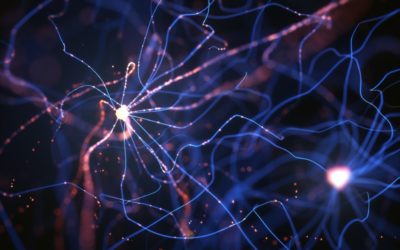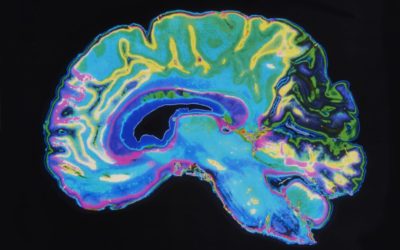Quick Hits
Daily brief research updates from the cognitive sciences

Many years ago I first heard the advice of “Don’t watch the news if you want to be happy”. The reason is that news is more often than not negative – I have written about this negativity bias previously – as the saying goes in news circles “if it bleeds, it leads”.
So, avoiding this dose of negativity is probably a good thing. However, since I first heard this decades ago the world has changed with access to news ever more present – it is not just on the television, it is on every device that we carry and at every minute throughout the day whether through formal news websites or through social media applications. Now it seems much harder than ever to avoid the negativity of the news.
But is this really negative?
McGaughlin et al. have just published a study which they conducted with 1’100 US adults. The found that about 16.5% had problematic news consumption. This is when the desire to follow the news becomes similar to addiction with constant checking of the news almost 24 hours a day and being pulled into a constant cycle of trying to relieve one’s anxiety by checking the news but then getting further pulled in.
It might seem obvious that this is not a good place to be mentally but is this what they found?
They did indeed. With 73.6% of those with problematic news consumption reported experiencing mental ill-being “quite a bit” or “very much”. This is compared to only 8% of other participants.
But on top of this 61% those with problematic news consumption also reported physical ill-being “quite a bit” or “very much” in comparison to only 6.1% of other participants.
Those are quite dramatic figures and the surprising outcome is that this is correlated so strongly to physical as well as mental well-being.
This shows that that bit of sage advice of avoiding the news seems to be very good advice but more than that avoiding the blackhole of continuous news consumption.
Unfortunately, there seems to be no easy way out of this. 24-hour news consumption is possible and very easy. Maybe a more positive reporting would at least help. I’m not holding my breath and I’ll stick to my general news avoidance strategy (while keeping myself informed).

Andy Habermacher
Andy is author of leading brains Review, Neuroleadership, and multiple other books. He has been intensively involved in writing and research into neuroleadership and is considered one of Europe’s leading experts. He is also a well-known public speaker, speaking on the brain and human behaviour.
Andy is also a masters athlete (middle distance running) and competes regularly at international competitions (and holds a few national records in his age category).
Reference
Bryan McLaughlin, Melissa R. Gotlieb, Devin J. Mills.
Caught in a Dangerous World: Problematic News Consumption and Its Relationship to Mental and Physical Ill-Being.
Health Communication, 2022; 1
DOI: 10.1080/10410236.2022.2106086
More Quick Hits
Why Too Much Talent May Harm Performance
This may sound like a strange thing to say – but talent and team coordination are different things…
How Nutrition Can Increase Motivation – In the Brain
Fascinating study on how antioxidants (and therefore also nutrition) in the brain can increase motivation…
Mindfulness Intervention as Effective as Drugs in Anxiety Disorders
An important study showing how mindfulness is as effective as medication – without the side effects…
New Insights into How the Teenage Brain Develops
Teenagers’ brains go through substantial changes – and now we know more of some of these…
Screen Time Boosts Wellbeing in Teenagers!
Screen time is considered a modern technological evil – maybe not so for teenagers…
Taking Photographs of Slides Improves Memory of Presentations
Taking pictures has been shown to reduce memory – but this study shows the opposite…






